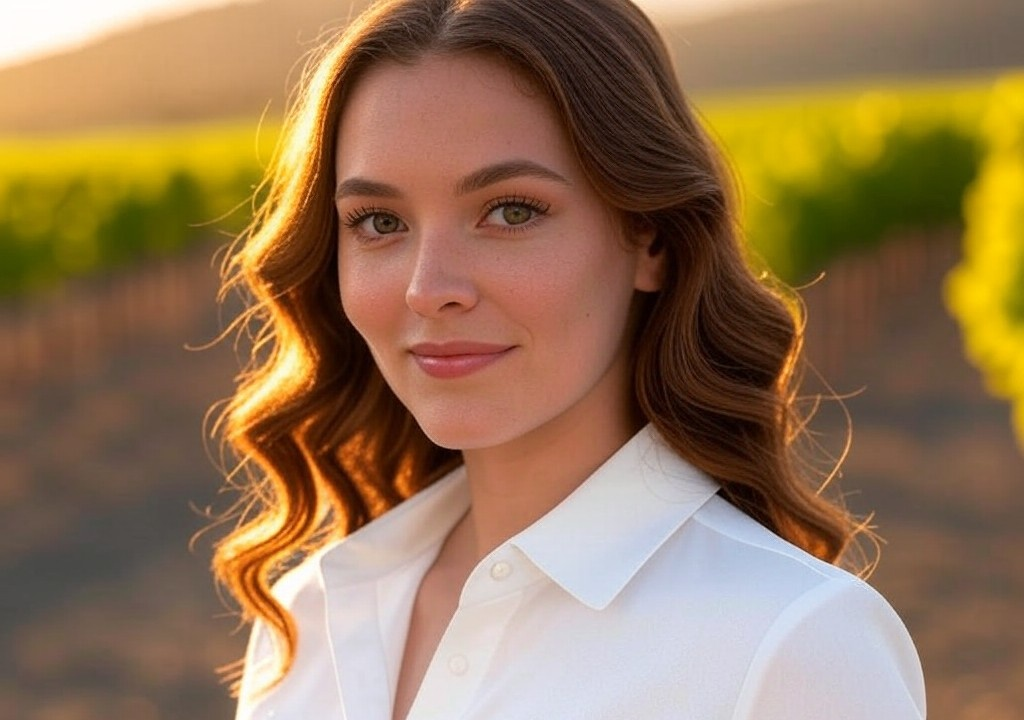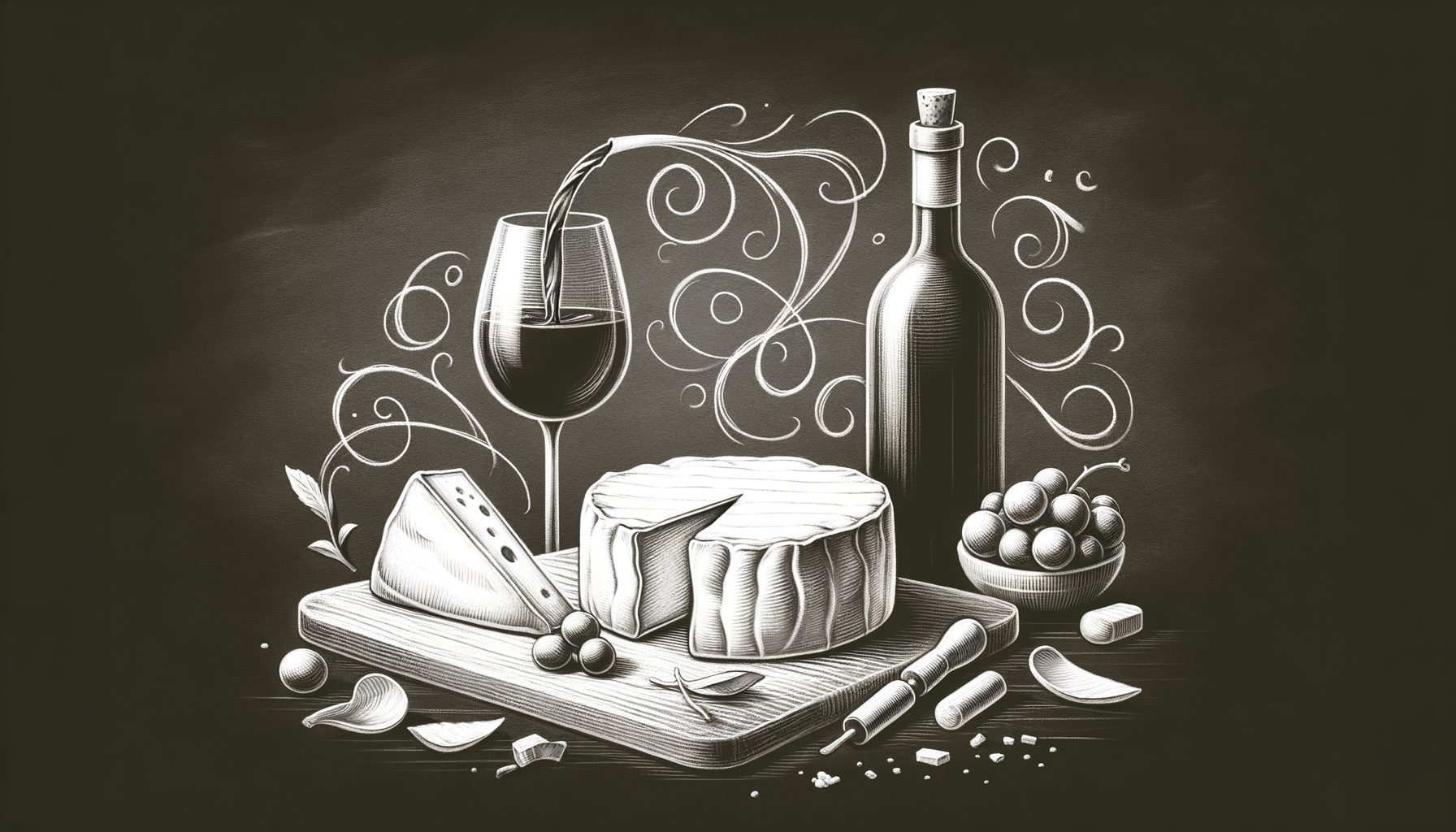You Never Know Who You'll Meet In A Cheese Shop
I didn’t meet Jules at a farmer’s market or on a winery patio during golden hour—both settings I’d consider peak Napa Valley—but rather in front of a precarious tower of Brie. I was twenty-one and studying abroad in France, teetering on the edge of adulthood in a way only a girl trying to pronounce “Comté” without butchering it can. Jules had short red hair, triple-pierced ears, and the kind of presence that made everyone around her seem like a supporting actor.
She was French in the way I wanted to be: effortlessly stylish, unbothered, and magnetic. Jules caught me mid-wince at the cheese counter and, rather than smirk at my American ineptitude, stepped right in. “It’s like saying 'calm' but without the 'l,'” she explained, ghosting the letters in the air with her hand. It was this small, borderline unnecessary act of patience that first hooked me. Jules wasn’t just fluent in French; she seemed fluent in people.
A Friend Who Feeds the Soul (Literally and Figuratively)
Jules and I became friends over evenings spent at cafés drinking espresso martinis that somehow tasted romantic and complicated at the same time. She talked me through heartbreaks with the precision of a surgeon dissecting the anatomy of my dating disasters. “Your problem,” she’d say, leaning over the café table with a glass of Merlot in one hand, “is that you think relationships are recipes when they’re really improvisations. No one likes someone who measures love by teaspoons.”
It’s an image I can’t shake because Jules was so often right, and not in a smug way but in the way that makes you question how you’d been living up until then. She was part philosopher, part provocateur, and always the first person to challenge the self-proclaimed “rules” I thought governed my relationships (you know the ones—call only after three days, play it coy so they take you seriously, never double text under any circumstances).
She taught me the joy of living unscripted, relishing the unexpected. Love, she insisted, should feel a little messy, like a perfectly ripe Roquefort that spills out of its rind. And even in the more sobering conversations—like how I chose partners based on potential (not reality) or mistook vague flattery for commitment—her honesty wasn’t just palatable; it was the main event.
Flirting, Friendship, and Freedom: What Jules Taught Me About Perspective
Before Jules, I thought flirting was confined to candlelit dinners and locked-eye moments over shared cabernet. Jules reminded me that it’s not just a pre-relationship ritual but an everyday act of playfulness and connection—yes, even within friendships.
Once, on one of our many meandering walks through Paris, I lamented how a would-be boyfriend had “ghosted” after a series of perfectly charming dates. She stopped in the middle of a cobblestone street, horror-stricken but also bemused, and said, “Why are we still haunting men who don’t make us feel alive?” It was peak Jules—blunt yet wise, leaving me both inspired and slightly roasted.
She flipped dating on its head for me, insisting the pursuit of another person wasn’t some lonely quest to find “The One.” Instead, it was a vacation into someone else’s world. “Visit, don’t renovate,” she’d say with a shrug, tossing me a pain au chocolat like a particularly poetic French drill sergeant.
She also taught me that being single doesn’t mean being alone—but failing to cultivate joy in yourself does. Jules flirted with life itself. She treated every interaction like an aperitif, savoring the small thrill of banter with a barista or the ritual of choosing the right scarf for an afternoon by the Seine. This wasn’t so much about being “fun” as it was about being alive, about leaning into every experience and treating it like it deserved her full attention.
Jules’ (Unintentional) Guidebook to Thriving in Relationships
None of Jules’ lessons ever arrived in pamphlet form—instead, they slowly revealed themselves, like wines developing layers as they breathe. For example:
-
Know your worth, even if others don’t immediately see it.
While talking me through yet another breakup, Jules joked that I chose partners the way people choose their first wines—safe, predictable, and utterly uninspired. “You’re a Bordeaux, cherie,” she told me. “Stop letting people treat you like table wine.” -
Stop treating yourself like a stopgap between “now” and “happily ever after.”
Jules had this knack for reminding me that the present moment deserves as much attention as the eventual future you’re working toward. “What if there’s no relationship waiting for you that’s better than the one you have with yourself now?” It felt revolutionary at the time, but it’s since become a mantra I live by. -
Be a collector of moments, not outcomes.
Jules wasn’t particularly sentimental, but she knew how to curate her life like a gallery of unforgettable nights and encounters. It’s how she tackled everything, from food to relationships—less attached to getting it “right” and more invested in making it meaningful. -
Beauty is in the storytelling.
Whether recounting a failed date or celebrating an anniversary, Jules reminded me that our narratives matter. “Every person adds a little color to your canvas,” she said, holding my hand as we polished off yet another bottle of Côte du Rhône.
Lessons That Grow With Time
It’s been years since that semester abroad, yet Jules’ influence lingers like the smell of warm bread outside a boulangerie. I think of her when I navigate the dizzying highs and lows of marriage with my husband, Ben—when I remind myself to play more, to embrace the mess, and to nourish our relationship with the care of a perfect wine-food pairing. I think of her most when I sit down for dinner with friends, glass in hand, knowing that something as simple as a laugh across the table can nourish the heart too.
Friendship often gets written off as love’s quieter, less tempestuous cousin, but it deserves its own spotlight. If Jules taught me anything, it's that friendships can be what shape us most, challenging us when we stagnate and holding mirrors up to our lives in ways that lasting romantic partners might not. Jules didn’t just change my perception of relationships; she changed my perception of myself.
So the next time someone asks me who really changed my life, I won’t hesitate. (Sorry, Ben.)
It’s Jules—the friend who loved creativity, connection, and Camembert in equal measure. And I wouldn’t have it any other way.




















